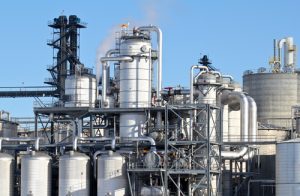
U.S. Sen. John Hoeven (R-ND) on Oct. 13 helped kick off Midwest AgEnergy’s (MAG) Carbon Zero Initiative, a multi-phased approach to reducing the company’s carbon emissions to zero.
“With the launch of Midwest AgEnergy’s Carbon Zero initiative, our state continues to lead the way in the development of CCUS [carbon capture, utilization and storage technology], a critical path forward for both traditional and renewable energy producers, enabling us to develop more energy with fewer emissions,” Sen. Hoeven said during the event. “We’ve worked for well over a decade to set the stage for projects like this, including securing the state authority needed to regulate CO2 storage, funding research into CCUS, and implementing and expanding the 45Q tax credit.”
Blue Flint, a MAG company based in Underwood, N.D., during the Tuesday event also celebrated the start of drilling for a stratigraphic test well to study the feasibility of CO2 underground storage through the CCUS process.
MAG is drilling the well to first test the region’s geological formations for the potential to store CO2, according to Sen. Hoeven’s office, which noted that if the area is suitable, the company will seek a Class VI permit to fully develop the injection well to sequester emissions from the Blue Flint ethanol plant.
“Being co-located with a coal-fired power station, the Blue Flint ethanol facility already demonstrated the innovative approach we take in North Dakota,” said Sen. Hoeven. “With the application of CCUS, our ethanol industry will be able to access more markets and have a more secure economic future.”
According to the senator’s office, the project also will enable the facility to sell to states with low carbon fuel standards, including California and those in the Pacific Northwest, ensuring a broader market for the company’s product.
Sen. Hoeven also continues working to fund efforts like the Plains Carbon Dioxide Reduction Partnership and the CarbonSAFE Initiative in North Dakota, which support the development of commercial-scale CO2 storage facilities, according to his office.



